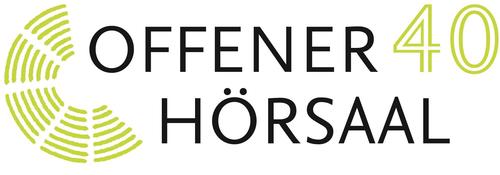Diversity generates Science - Science generates Diversity
Winter term 2023/2024
A lecture series of the Departments of Physics, Biology/Chemistry/Pharmacy, and Mathematics/Informatics of Freie Universität Berlin
Science and society are closely correlated. The circumstances of production, utilization, communication and dissemination of scientific knowledge must always be considered in the context of societal and historical-sociocultural contexts, framework conditions and power relations. Scientific knowledge, in turn, contributes to the (re)production as well as to the change of societal contexts and frameworks in the course of its mediation in educational contexts, its communication to the public as well as its transfer into different fields of application. The shaping of all social areas and living environments is therefore permeated by scientific knowledge and technologies and incorporates scientific findings in debates and approaches to solving current challenges. At the same time, science is continuously renewed through critical and reflexive analyses and social debates.
The lecture series "Diversity generates Science - Science generates Diversity" presents critical-reflexive analyses of gender and diversity research in STEM, shows perspectives for a science of diversity, and illustrates with numerous examples that the STEM subjects are not 'cultures of no culture', i.e. sciences free of historical-sociocultural aspects.
What are the implications of this finding for societal challenges and the resulting questions addressed to science(s) and their answers? What are the consequences for the self-images of the disciplines in STEM, their scientific communities and their professional cultures? What does this mean for the production of scientific knowledge, its communication to and with society, and the manifold applications of knowledge? These and other questions are addressed by the lecture series, whose lectures are assigned to three main topics:
1.) Diversity of STEM in terms of diversity of scientific communities, professional cultures and education;
2.) Diversity of knowledge in STEM with regard to its generation and canonization, taking into account current debates on research desiderata and marginalized knowledge;
3.) Diversity of knowledge in the context of transfer processes between science and society in science communication and the integration of technologies into the living environment.
If we succeed in achieving more diversity in science and in scientific knowledge and its applications with regard to these perspectives, science can also enable more diversity with regard to participation in science, with regard to the consideration of research desiderata and the integration of marginalized knowledge, and last but not least with regard to more diverse approaches to solutions for societal challenges.
The interdisciplinary lecture series brings together perspectives, approaches and research fields from STEM with research results and discourses of gender and diversity research in, about and on these disciplines. The focus will be on the diversity of possibilities that these disciplines provide in and for societal debates. In addition, findings from the educational and social sciences, didactics, science and technology studies, and the history of science will be integrated.
- Concept: Prof. Dr. Martina Erlemann, Dr. Tanja Kubes (Department of Physics), Prof. Dr. Petra Lucht, Dr. Sarah Huch (Department of Biology/Chemistry/Pharmacy), Dr. Anina Mischau und Sera-Renée Zentiks (Department of Mathematics and Informatics)
- Contact: Prof. Dr. Martina Erlemann, Freie Universität Berlin, Department of Physics, Research Group of Gender & Science Studies in Physics, Tel.: 030 - 838 582 13 (Secretary: Angelin See, E-Mail: a.see@fu-berlin.de)
- Media library: Here
